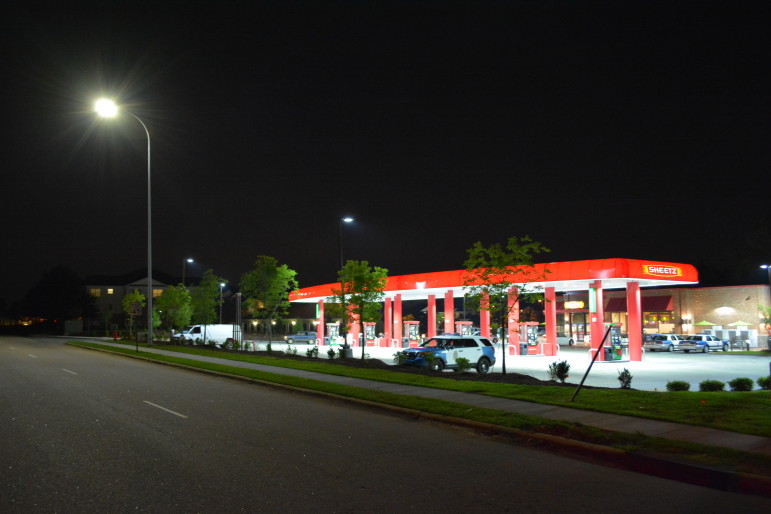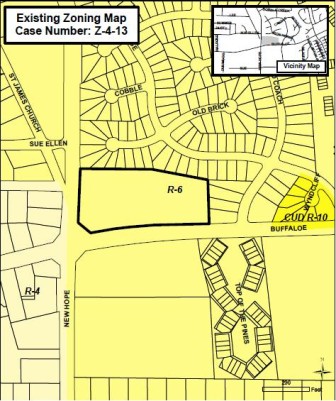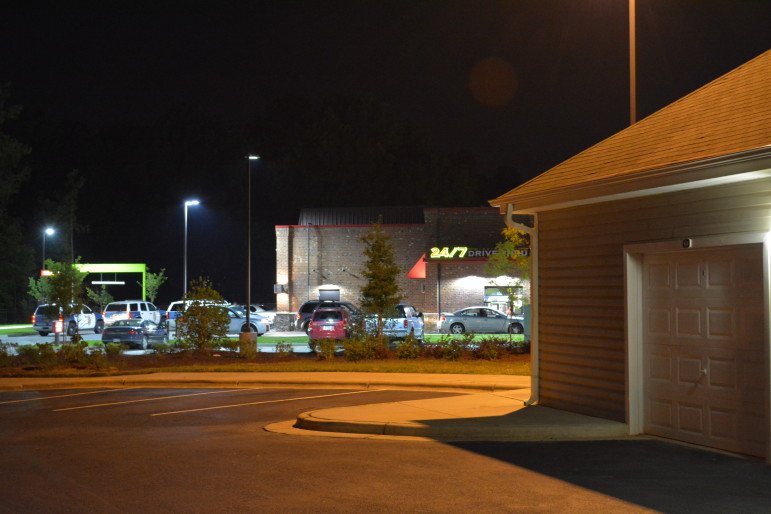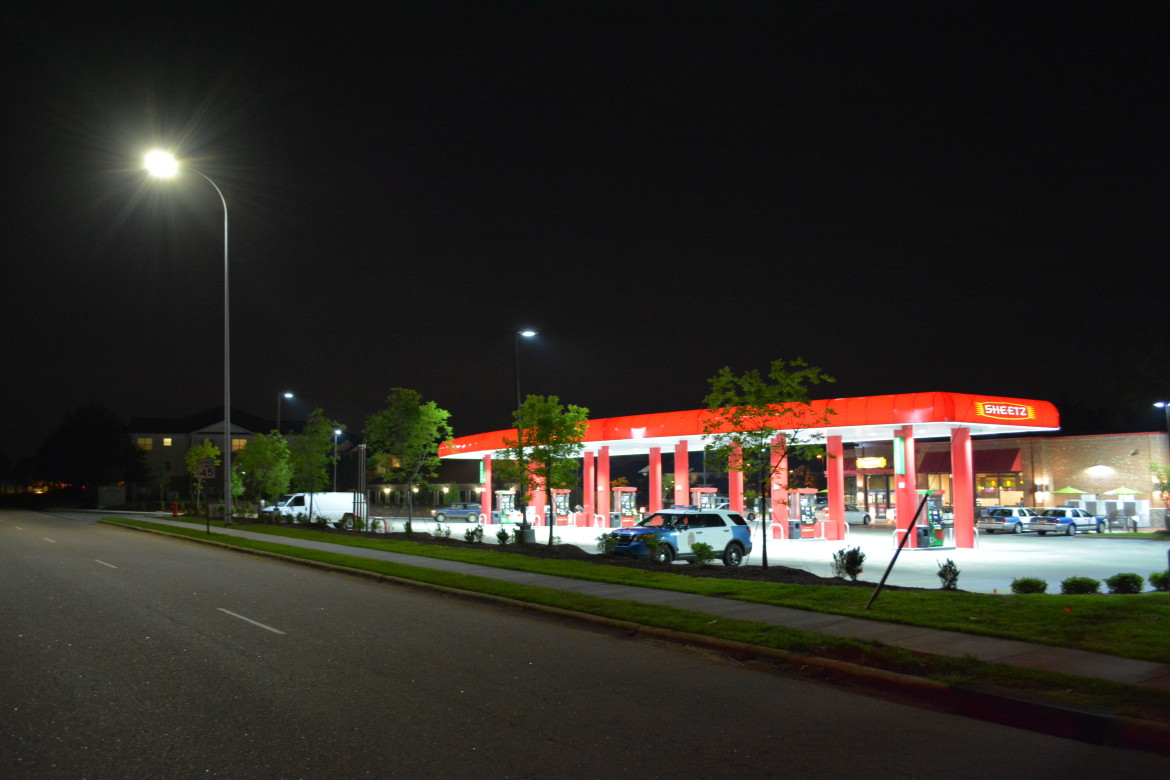TC-2(B)-15, a text change restricting gas stations near neighborhoods, was recommended for approval by the planning commission on Tuesday. Attorney Tom Worth, representing small gas stations in the discussion, said the text change represents a compromise by all parties involved.

James Borden / Raleigh Public Record
This Sheetz on Green Road is located next to an apartment complex
The change imposes certain restrictions on gas stations or “co-branded” gas stations that include convenience stores if they are within 200 feet of a residential zoning district. Hours of operation cannot exceed 6 a.m. to 11 p.m., total pumps allowed are no more than eight, backlighting of the canopies is prohibited, and a significant buffer most be placed on the property to block out noise impacts.
“We heard a lot of comments by citizens,” Eric Braun, member of the text change committee, said at Tuesday’s meeting. “We had very consistent attendance by citizens. We had a lot of input from industry.”
Sheetz Development a Catalyst for Change
The genesis for the text change started with a rezoning case. Two years ago, the gas station company Sheetz wanted to build a station at the intersection of Buffaloe and New Hope Roads. Neighborhood residents filed a valid statutory protest petition in the case and voiced enough opposition that city council denied the rezoning request by a unanimous vote.

City of Raleigh
The original site plan for the Buffaloe/New Hope Sheetz
According to Michi Vojta, who began to advocate for neighborhoods during that case, people were voicing opposition not because it was a standard gas station. It was the opposite. Big and red. Brightly lit. Music blaring. Open 24 hours every single day of the year. All backed up right next to 16 residential lots in an area that was zoned mostly residential-6, meaning six residential units per acre.
“If you are going to allow gas stations in [neighborhood mixed-use districts], I feel like they should be small neighborhood based ones, with maybe four cars to fill up simultaneously, maybe locally owned,” Vojta said.
After the rezoning case was denied, city council directed staff to author a text change that would address the problem of gas stations being treated as a general use versus a specific use. This would allow for restrictions, specifically for gas stations close to neighborhoods.
Middle-Ground Found in Text Change Meetings
According to Braun, the process of hammering out the text change came over a four-to-five month period. Those meetings showed consistent turnout — around 65 percent citizens and 35 percent gas station representatives. Sheetz had a representative, and Tom Worth represented a number of small gas stations. Vojta was there for five meetings.
Some wanted to ban convenience store/gas stations from neighborhood mixed-use districts all together.
“I’m not sure that’s the best approach,” Braun said. “We took the best approach that took the middle-ground.”
The final work shows a tentative balance between all parties. The text change was guided by numerous policies from the comprehensive plan, including requirements for managing commercial development impacts, density transitions, and buffer requirements. A section on high impact commercial uses was also consulted.
Braun: ‘I Don’t Think the Tension is Ever Going Away’
At the planning commission meeting on Tuesday, the word ‘compromise’ was used frequently to describe the text change. That showed during the public hearing, when both a citizen and a Sheetz representative spoke out, advocating for their views.
Braun doesn’t think the tension between developments with increased density and neighborhoods will cease. He says that the elected officials and planning commission will have to work hard to address the concerns for both sides.
Vojta says she’ll continue writing letters to and talking to public officials about this issue. But she also says she and other advocates think this text change will help protect neighborhoods more from the impact of larger gas stations.

James Borden / Raleigh Public Record
Many people would not want to live this close to a 24-hour gas station
